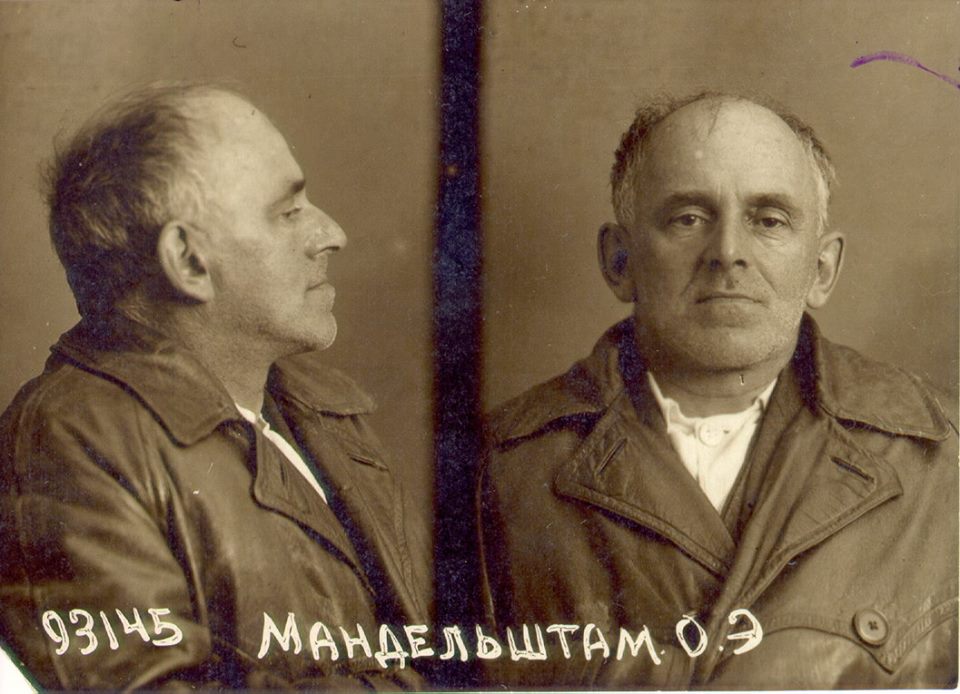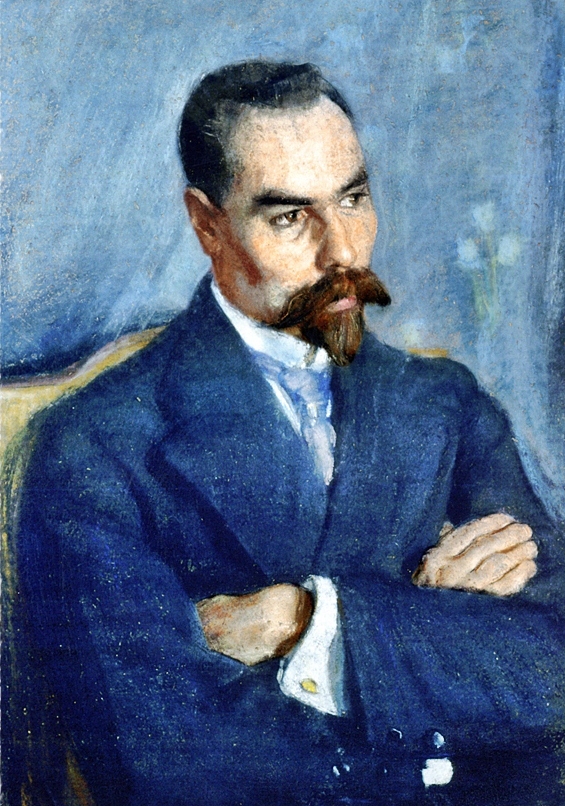|
Sergey Gorodetsky
Sergey Mitrofanovich Gorodetsky (; – June 8, 1967) was a Russian poet. He was one of the founders (together with Nikolay Gumilev) of "Guild of Poets" (). He was born in Saint Petersburg, and died in Obninsk. Gorodetsky entered the literary scene as a Symbolist, developing friendships with Alexander Blok, Vyacheslav Ivanov, and Valery Briusov. Following his brief stint with Symbolists, Gorodetsky began to associate with younger poets, forming the Acmeist group with Nikolai Gumilev, Anna Akhmatova, and Osip Mandelshtam. Subsequently, abandoning yet another group, he welcomed the Bolshevik revolution The October Revolution, also known as the Great October Socialist Revolution (in Soviet historiography), October coup, Bolshevik coup, or Bolshevik revolution, was the second of two revolutions in Russia in 1917. It was led by Vladimir L ... as a Soviet poet. References External links English translations of 2 poems by Babette Deutsch and Avrahm Yarmolinsky, 1921T ... [...More Info...] [...Related Items...] OR: [Wikipedia] [Google] [Baidu] |
Gorodetsky By Repin
Gorodetsky (masculine), Gorodetskaya (feminine), or Gorodetskoye (neuter) may refer to: * Gorodetsky (surname) * Gorodetsky District, a district of Nizhny Novgorod Oblast, Russia * Gorodetsky (rural locality) (''Gorodetskaya'', ''Gorodetskoye''), name of several rural localities in Russia See also * Mayak Gorodetsky, a rural locality in Ostrovnoy, Murmansk Oblast, Russia {{Disambiguation, geo ... [...More Info...] [...Related Items...] OR: [Wikipedia] [Google] [Baidu] |
Nikolai Gumilev
Nikolai Stepanovich Gumilev (also Gumilyov; , ; – August 26, 1921) was a Russian poet, literary critic, traveler, and military officer. He was a co-founder of the Acmeist movement. He was the husband of Anna Akhmatova and the father of Lev Gumilev. Nikolai Gumilev was arrested and executed by the Cheka, the secret Soviet police force, in 1921. Early life and poems Nikolay Gumilev was born in the town of Kronstadt on Kotlin Island, into the family of Stepan Yakovlevich Gumilev (1836–1910), a naval physician, and Anna Ivanovna L'vova (1854–1942). His childhood nickname was "Montigomo," the Hawk's Claw."Gumilyov's Magic Wand". Mikhail Sinelnikov. ''Moscow News'' (Russia). CULTURE; No. 15. April 18, 1996. He studied at the gymnasium of Tsarskoye Selo, where the Symbolist poet Innokenty Annensky was his teacher. Later, Gumilev admitted that it was Annensky's influence that turned his mind to writing poetry. He spent some of his youth in Tbilisi, Georgia attending the First ... [...More Info...] [...Related Items...] OR: [Wikipedia] [Google] [Baidu] |
1967 Deaths
Events January * January 1 – Canada begins a year-long celebration of the 100th anniversary of Canadian Confederation, Confederation, featuring the Expo 67 World's Fair. * January 6 – Vietnam War: United States Marine Corps and Army of the Republic of Vietnam troops launch ''Operation Deckhouse Five'' in the Mekong Delta. * January 8 – Vietnam War: Operation Cedar Falls starts, in an attempt to eliminate the Iron Triangle (Vietnam), Iron Triangle. * January 13 – A military coup occurs in Togo under the leadership of Étienne Eyadema. * January 15 – Louis Leakey announces the discovery of pre-human fossils in Kenya; he names the species ''Proconsul nyanzae, Kenyapithecus africanus''. * January 23 ** In Munich, the trial begins of Wilhelm Harster, accused of the murder of 82,856 Jews (including Anne Frank) when he led German security police during the German occupation of the Netherlands. He is eventually sentenced to 15 years in prison. ** Milton Keynes in England is ... [...More Info...] [...Related Items...] OR: [Wikipedia] [Google] [Baidu] |
1884 Births
Events January * January 4 – The Fabian Society is founded in London to promote gradualist social progress. * January 5 – Gilbert and Sullivan's comic opera '' Princess Ida'', a satire on feminism, premières at the Savoy Theatre, London. * January 7 – German microbiologist Robert Koch isolates '' Vibrio cholerae'', the cholera bacillus, working in India. * January 18 – William Price attempts to cremate his dead baby son, Iesu Grist, in Wales. Later tried and acquitted on the grounds that cremation is not contrary to English law, he is thus able to carry out the ceremony (the first in the United Kingdom in modern times) on March 14, setting a legal precedent. * January – Arthur Conan Doyle's anonymous story " J. Habakuk Jephson's Statement" appears in the ''Cornhill Magazine'' (London). Based on the disappearance of the crew of the '' Mary Celeste'' in 1872, many of the fictional elements introduced by Doyle come to replace the real event ... [...More Info...] [...Related Items...] OR: [Wikipedia] [Google] [Baidu] |
Soviet Poets
This is a list of authors who have written poetry in the Russian language. Alphabetical list A B C D E F G I K L M N O P R S T U V Y Z See also * List of Russian architects * List of Russian artists * List of Russian explorers * List of Russian inventors * List of Russian-language novelists * List of Russian-language playwrights * List of Russian-language writers * Russian culture * Russian poetry * Russian literature * Russian language * :Russian poets Sources * * {{DEFAULTSORT:List Of Russian Language Poets Lists of poets by language, Russian Russian poets, Soviet poets, Russian writers, Lists of Russian people by occupation, Poets Russian literature-related lists de:Liste russischsprachiger Dichter ... [...More Info...] [...Related Items...] OR: [Wikipedia] [Google] [Baidu] |
Male Poets From The Russian Empire
Male (symbol: ♂) is the sex of an organism that produces the gamete (sex cell) known as sperm, which fuses with the larger female gamete, or ovum, in the process of fertilisation. A male organism cannot reproduce sexually without access to at least one ovum from a female, but some organisms can reproduce both sexually and asexually. Most male mammals, including male humans, have a Y chromosome, which codes for the production of larger amounts of testosterone to develop male reproductive organs. In humans, the word ''male'' can also be used to refer to gender, in the social sense of gender role or gender identity. Overview The existence of separate sexes has evolved independently at different times and in different lineages, an example of convergent evolution. The repeated pattern is sexual reproduction in isogamous species with two or more mating types with gametes of identical form and behavior (but different at the molecular level) to anisogamous species with gamet ... [...More Info...] [...Related Items...] OR: [Wikipedia] [Google] [Baidu] |
October Revolution
The October Revolution, also known as the Great October Socialist Revolution (in Historiography in the Soviet Union, Soviet historiography), October coup, Bolshevik coup, or Bolshevik revolution, was the second of Russian Revolution, two revolutions in Russia in 1917. It was led by Vladimir Lenin's Bolsheviks as part of the broader Russian Revolution of 1917–1923. It began through an insurrection in Petrograd (now Saint Petersburg) on . It was the precipitating event of the Russian Civil War. The initial stage of the October Revolution, which involved the assault on Petrograd, occurred largely without any casualties. The October Revolution followed and capitalized on the February Revolution earlier that year, which had led to the abdication of Nicholas II and the creation of the Russian Provisional Government. The provisional government, led by Alexander Kerensky, had taken power after Grand Duke Michael Alexandrovich of Russia, Grand Duke Michael, the younger brother of ... [...More Info...] [...Related Items...] OR: [Wikipedia] [Google] [Baidu] |
Osip Mandelshtam
Osip Emilyevich Mandelstam (, ; – 27 December 1938) was a Russian and Soviet poet. He was one of the foremost members of the Acmeist school. Osip Mandelstam was arrested during the repressions of the 1930s and sent into internal exile with his wife, Nadezhda Mandelstam. Given a reprieve of sorts, they moved to Voronezh in southwestern Russia. In 1938, Mandelstam was arrested again and sentenced to five years in a corrective-labour camp in the Soviet Far East. He died that year at a transit camp near Vladivostok. Life and work Mandelstam was born on 14 January 1891 in Warsaw, Congress Poland, Russian Empire, to a wealthy Polish-Jewish family. His father, a leather merchant by trade, was able to receive a dispensation freeing the family from the Pale of Settlement. Soon after Osip's birth, they moved to Saint Petersburg. In 1900, Mandelstam entered the prestigious Tenishev School. His first poems were printed in 1907 in the school's almanac. As a schoolboy, he was intro ... [...More Info...] [...Related Items...] OR: [Wikipedia] [Google] [Baidu] |
Anna Akhmatova
Anna Andreyevna Gorenko rus, А́нна Андре́евна Горе́нко, p=ˈanːə ɐnˈdrʲe(j)ɪvnə ɡɐˈrʲɛnkə, a=Anna Andreyevna Gorenko.ru.oga, links=yes; , . ( – 5 March 1966), better known by the pen name Anna Akhmatova,. was a Russian and Soviet poet, one of the most significant of the 20th century. She reappeared as a voice of Russian poetry during World War II. She was nominated for the Nobel Prize in Literature in 1965 Nobel Prize in Literature, 1965 and 1966 Nobel Prize in Literature, 1966.Nomination archive – Anna Achmatova nobelprize.org Akhmatova's work ranges from short lyric poetry, lyric poems to intricately structured cycles, such as Requiem (Anna Akhmatova), ''Requiem'' (1935–40), her tragic masterpiece about the Great Purge, Stalinist terror. ... [...More Info...] [...Related Items...] OR: [Wikipedia] [Google] [Baidu] |
Acmeist Poetry
Acmeism, or the Guild of Poets, was a modernist transient poetic school, which emerged or in 1912 in Russia under the leadership of Nikolay Gumilev and Sergei Gorodetsky. Their ideals were compactness of form and clarity of expression. The term was coined after the Greek word ἀκμή (''akmē''), i.e., "the best age of man". The acmeist mood was first announced by Mikhail Kuzmin in his 1910 essay "Concerning Beautiful Clarity". The acmeists contrasted the ideal of Apollonian clarity (hence the name of their journal, '' Apollon'') to "Dionysian frenzy" propagated by the Russian symbolist poets like Bely and Vyacheslav Ivanov. To the Symbolists' preoccupation with "intimations through symbols" they preferred "direct expression through images". In his later manifesto "The Morning of Acmeism" (1913), Osip Mandelstam defined the movement as "a yearning for world culture". As a " neo-classical form of modernism", which essentialized "poetic craft and cultural continuity", the G ... [...More Info...] [...Related Items...] OR: [Wikipedia] [Google] [Baidu] |
Poet
A poet is a person who studies and creates poetry. Poets may describe themselves as such or be described as such by others. A poet may simply be the creator (thought, thinker, songwriter, writer, or author) who creates (composes) poems (oral tradition, oral or literature, written), or they may also performance, perform their art to an audience. The work of a poet is essentially one of communication, expressing ideas either in a literal sense (such as communicating about a specific event or place) or metaphorically. Poets have existed since prehistory, in nearly all languages, and have produced works that vary greatly in different cultures and periods. Throughout each civilization and language, poets have used various styles that have changed over time, resulting in countless poets as diverse as the literature that (since the advent of writing systems) they have produced. History Ancient poets The civilization of Sumer figures prominently in the history of early poetry, a ... [...More Info...] [...Related Items...] OR: [Wikipedia] [Google] [Baidu] |
Valery Bryusov
Valery Yakovlevich Bryusov ( rus, Вале́рий Я́ковлевич Брю́сов, p=vɐˈlʲerʲɪj ˈjakəvlʲɪvʲɪdʑ ˈbrʲusəf, a=Valyeriy Yakovlyevich Bryusov.ru.vorb.oga; – 9 October 1924) was a Russian poet, prose writer, dramatist, translator, critic and historian. He was one of the principal members of the Russian Symbolist movement.Darko Suvin, "Bryusov,Valery" in Curtis C. Smith, '' Twentieth-Century Science-Fiction Writers''. Chicago, St. James, 1986. (pp. 840–41). Background Valery Bryusov was born on 13 December 1873 (1 December 1873 according to the old Julian calendar) into a merchant's family in Moscow. His parents were educated for their class and had some literary associations, but had little to do with his upbringing, leaving the boy largely to himself. He spent a great deal of time reading "everything that fell into ishands", including the works of Charles Darwin and Jules Verne, as well as various materialistic and scientific essays. The ... [...More Info...] [...Related Items...] OR: [Wikipedia] [Google] [Baidu] |






